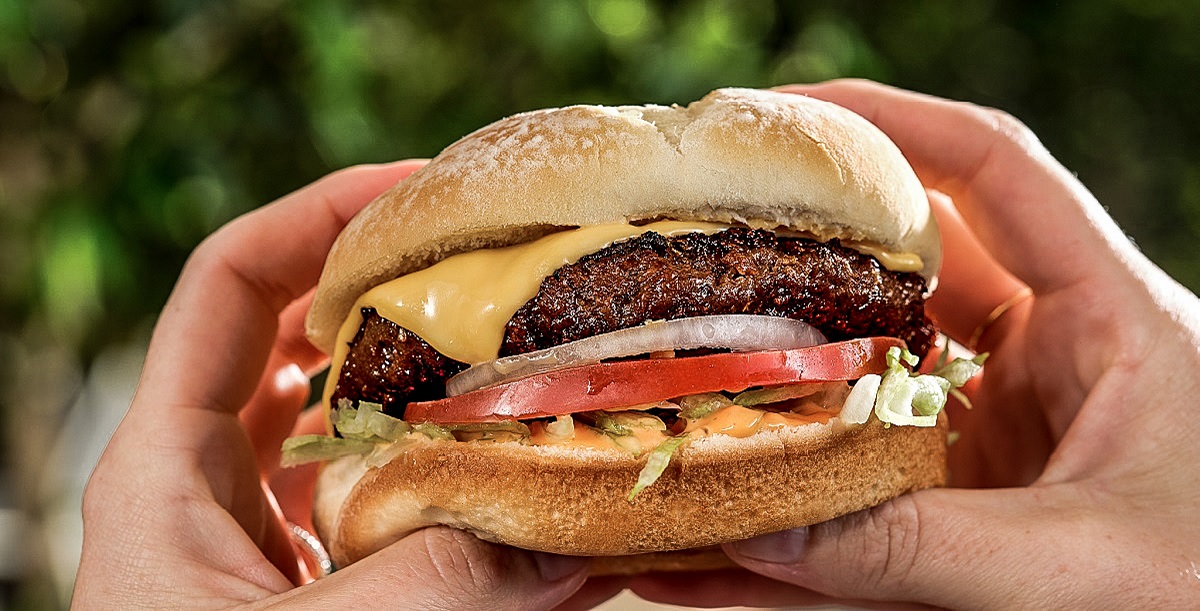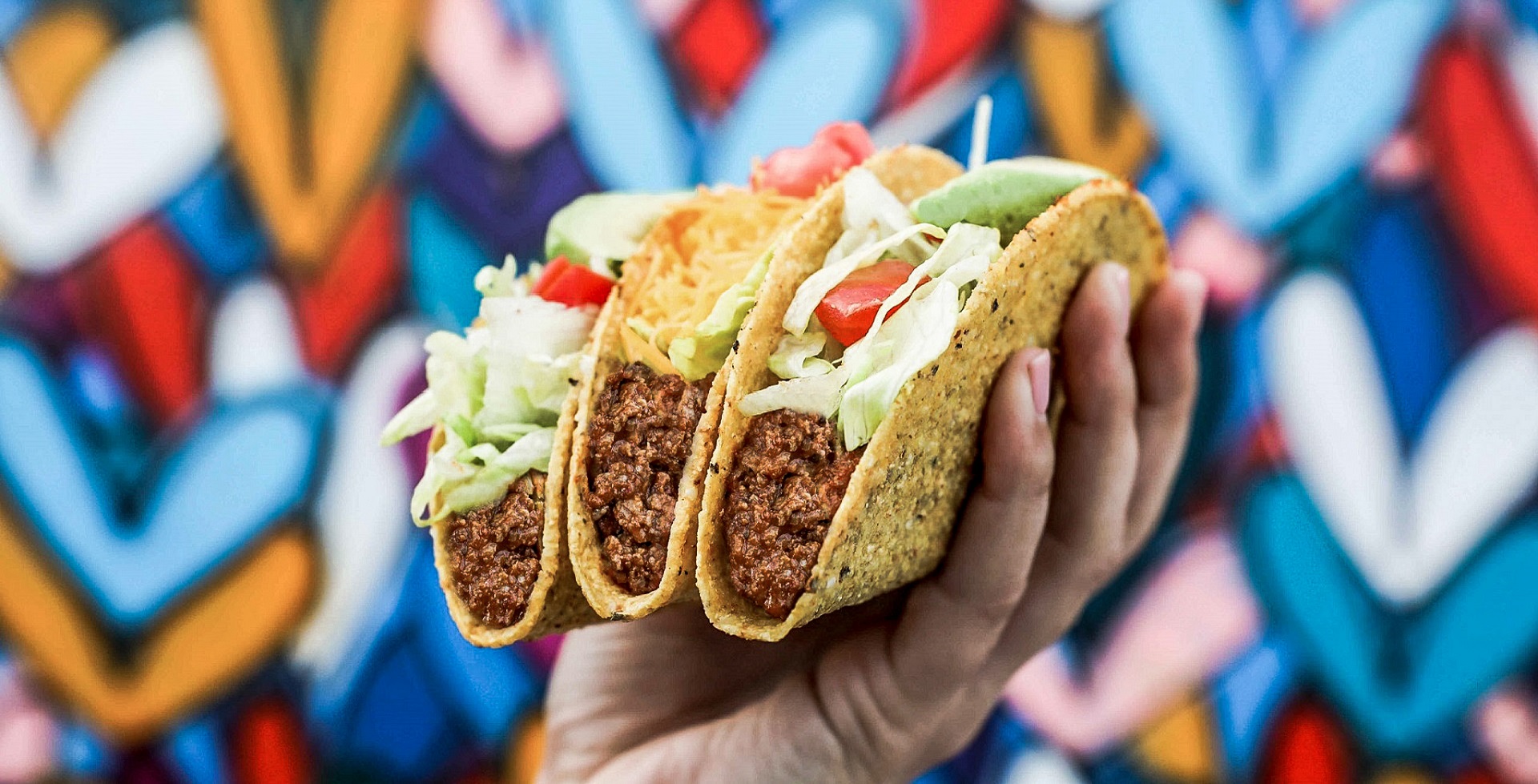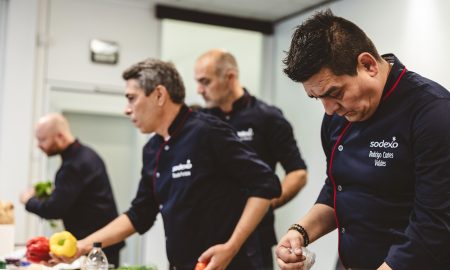“We currently lack the imagination about what we can eat when we eat less meat,” says food trend expert Hanni Rützler. After all, people have always hankered after meat, haven’t they? Some researchers even go so far as to say that eating meat has played a significant role in brain development, therefore, making us what we are today. But this theory is controversial. On the other hand, meat has no doubt drawn a great deal of criticism due to industrial mass livestock farming, both from an ethical and an ecological point of view. The latter is also addressed in the previously cited study by the University of Bonn, which, in addition to the effects of meat consumption on the environment and climate, also examines the health and economic effects. But what should we really eat instead?

Image: AdobeStock | sonyakamoz
No seafood, no meat, plant-based food instead
For many, the easiest solution seems to be plant-based foods. In other words, meat or fish substitutes usually industrially processed from vegetables, fruit, algae, mushrooms or legumes. Indeed, an increasing number of small start-ups and large corporations are jumping on this bandwagon. “There’s a real gold-rush atmosphere because the industry has realized that consumers are looking for alternatives,” the trend researcher explains.
Thanks to new technologies, it is now becoming increasingly possible to imitate meat. While initially only plant-based hamburger meat was available for purchase, companies like the American food company Beyond Meat are now launching pea-based steak tips that are very close to the original in terms of sensory properties and taste. “Beyond Meat makes “vegetable meat” more accessible than ever before and makes it easier for consumers to go beyond their usual eating habits,” Hanni Rützler writes in her current Food Trends 2024 report.

Image: Beyond Meat
Flexitarians as the biggest driver
However, the target group of this trend is not limited to vegetarians or vegans, as is often assumed. In reality, it is flexitarians who are driving this trend the most. Their number is growing, especially in Europe. A 2022 study by the forsa opinion research institute showed that the proportion of flexitarians in Germany alone increased from 44 to 47% within two years. Other countries are also seeing an increase in the number of people who are turning to meat-free alternatives. According to a Euromonitor study this figure is around 42% worldwide. Boston Consulting Group experts also estimate that the market for alternative meat, egg, dairy and seafood products is likely to reach at least USD 290 billion by 2035.
“Plant-based food has what it takes to become mainstream,” Rützler explains. “Flexitarians want to reduce meat consumption, but can’t imagine what to put on their plates instead, so they go for replacement products. But there, too, more patent solutions are needed.” Alternatives for the alternatives, so to speak. These come from the laboratory, as well as gourmet kitchens, among other places.

Image: Beyond Meat
Vegourmets further develop our dining culture
Particularly in urban gastronomy, creative concepts have developed that forego both mass-produced meat and plant-based food. But if you think that these restaurants leave something to be desired, you’re way off the mark. “Vegourmets”, as Hanni Rützler calls them, create dishes in which fresh, plant-based raw materials create completely new taste experiences and textures on the plate. They include chefs such as Paul Ivić from the Viennese Tian, Alexis Gauthier from the London-based Gauthier Soho or Swiss Tobias Buholzer, owner of the restaurant die rose (en.: the rose). They do not try to imitate the taste of meat or to cook meat-free versions of well-known dishes, but rather offer dishes where you don’t miss animal products at all. “This is really impressive and highly innovative,” enthuses the food trend researcher.
Sieh dir diesen Beitrag auf Instagram an
However, it would probably be very difficult to completely do without meat on a global scale. “Unlike in the past, meat is now affordable and abundant, meaning the paltry and meager cuisine of yore is not an option. Instead, what’s needed is proper cuisine that’s up to today’s standards, but much more sustainable.” Whether plant-based alternative products really are the solution to the “problem” described at the beginning is definitely open to debate. After all, the alternative products, most of which are industrially highly processed, are not completely without controversy themselves. On the one hand, not many plant-based food products are compelling enough in terms of taste, and on the other hand, not enough data is available to make valid statements and comparisons regarding their climate friendliness, according to the trend report.
Cheese made of yeast and meat from the lab
So what do you serve to those who don’t want to use plant-based, highly industrially processed alternatives, or do not want to go without meat, but still want to protect the planet? A lot is happening in this area as well. Hanni Rützler sees great potential for producing sustainable food using new techniques such as precision fermentation. With the help of yeast, you can make food that has the same properties and taste as cheese, but with the advantage that you no longer have to use animals to produce it.

Image: AdobeStock | tilialucida
In vitro meat, that is, meat produced artificially in the laboratory, which can now be produced and sold in the USA, could also overtake plant-based food in the near future. “That’s a big development for the future,” the trend researcher predicts. “If this market grows quickly and it succeeds in marketing and scaling in vitro meat well, it has the potential to completely change the entire meat market.”
However, it will be some time before such foods are available on the market in Europe, as many are still bogged down in the EU approval process.















